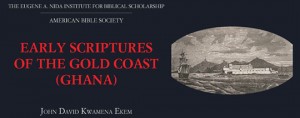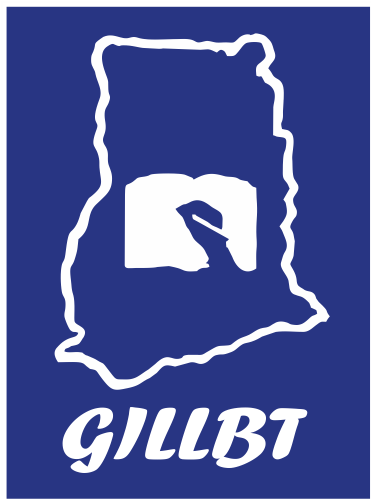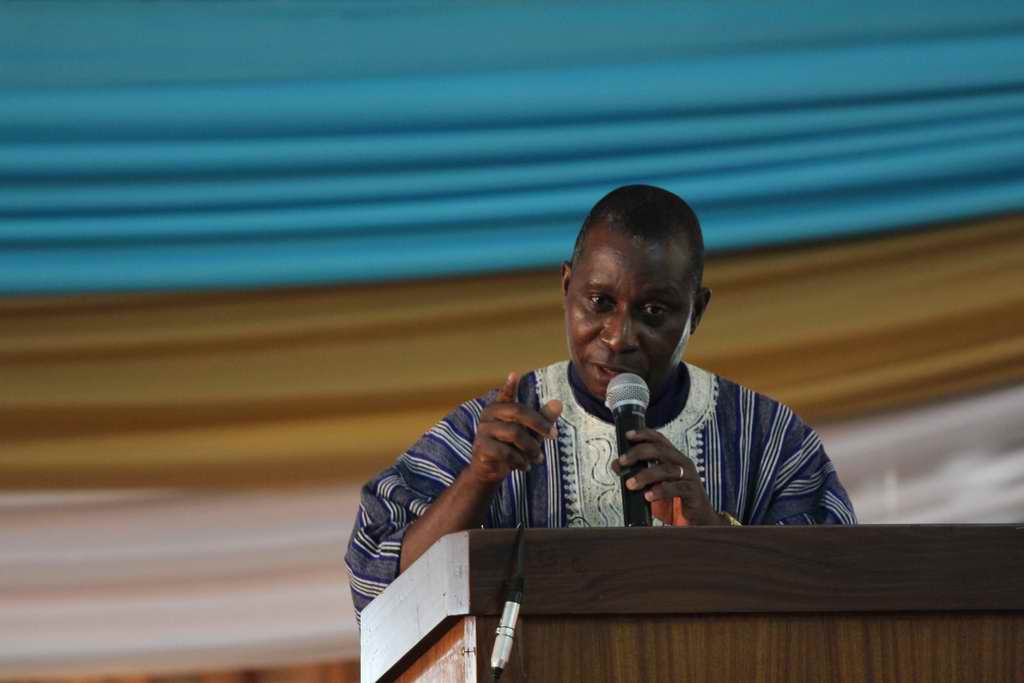This book review takes the form of a reflection on the broader theme or set of themes of the book, rather than a detailing of the book’s contents.
 As the title, Early Scriptures of the Gold Coast, of the book implies, it is a historical case study of the translation of the Bible into four of the dominant languages of the Gold Coast, now Ghana. It details the fascinating history of Ghanaians and Europeans collaborating on the translation of the scriptures. In doing so, the author is able to help his readers relive the lives and challenges of the early translators.
As the title, Early Scriptures of the Gold Coast, of the book implies, it is a historical case study of the translation of the Bible into four of the dominant languages of the Gold Coast, now Ghana. It details the fascinating history of Ghanaians and Europeans collaborating on the translation of the scriptures. In doing so, the author is able to help his readers relive the lives and challenges of the early translators.
The first chapter contains pleasant surprises: First, Bible translation actually began in Africa, with Africa referred to as the “cradle of Bible translation”. Second, mother translation in Ghana did not begin with missionaries but rather with a Ghanaian, Jacobus Capitein, who began translating the scriptures into Mfantse. Others have noted a “paradox of silence” in relation to the role of Africa and Africans in missions’ history. The author helps to end that silence. Subsequent chapters deal with the translation of the Ga, Akan (Akuapem-Twi and Asante-Twi), Mfantse (Fante), and Ewe languages. I am tempted to include some of the rich and enlightening details, but I will reluctantly leave that for readers to discover for themselves.
Overall this is a fascinating book that details not just the history of four Bible translations. It also gives details of the history of the Church in Ghana, of language development and the politics that often surround it, and of the development of literature.
Any study that can improve our historical understanding is instructive. And so, I conclude my review by reflecting on one implication related to the future of Mother tongue ministry in Ghana. The author concludes his work by stressing that the work of Mother Tongue in Ghana and Africa is an unfinished business. This raises an immediate question:
Given that, to date, the work of Bible translation in Ghana has been almost wholly funded by external funders, and that this external funding is dwindling, Who will be the patrons of the remaining translations in Ghana, and of revisions of current translations? This issue was brought to me when I visited the Wartburg Castle in Germany where Martin Luther translated the New Testament into German, his mother tongue. My reflection went to the protection the castle gave him to do the work—at a time when the official church wanted him dead. A German patron protected him by hiding him in this castle, thus giving him space to do his work.
Who are the Ghanaian and African Patrons who will protect our translators and theologians, and create the conditions for them to work effectively? As I reflected on this, the answer became obvious: The patrons for the ministry of Mother Tongue Scriptures should be Ghanaian/African Christians and the African church. The role of the African church is particularly important, as is captured by one of the earlier Ghanaian Christian nationalists, Dr Ephraim Amu who contributed to our patriotic songs, including our unofficial national anthem “Yen ara asase ni (this is our land), he was a firm supporter of Mother Tongue scriptures and theologizing. And in a sermon he preached at Achimota College on November 22, 1942 titled “The Bible in the Homely Language”, (or The Bible in the Mother tongue) he argues:
“The foreign mission,’ says Edwin Smith, ‘is not a permanent institution; it will pass away, but the Church remains.’ So some time sooner or later, there will come into existence the Church of Africa, or perhaps Church of West Africa, a church growing in the knowledge of the Bible, a church producing African Wyclifs, Tyndales and Luthers to make perfect versions of the Bible…” (Ephraim Amu cited in Laryea, 2012: 355).
Seventy years after he made this call, a church has emerged as a powerful, well-resourced actor on Ghana and Africa’s institutional landscape. But the work of Mother tongue ministry is incomplete and the support of the church in Ghana for Bible translation remains very minimal.
You can read the entire review of the book by Dr Paul Opoku-Mensah, Executive Director, GILLBT as he presented it at the British Council Hall, Accra on May 9, 2013. Click here.

